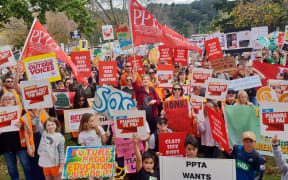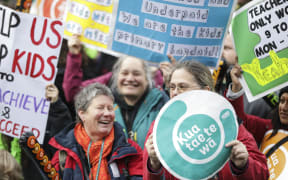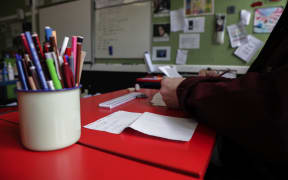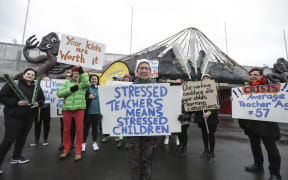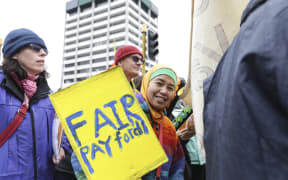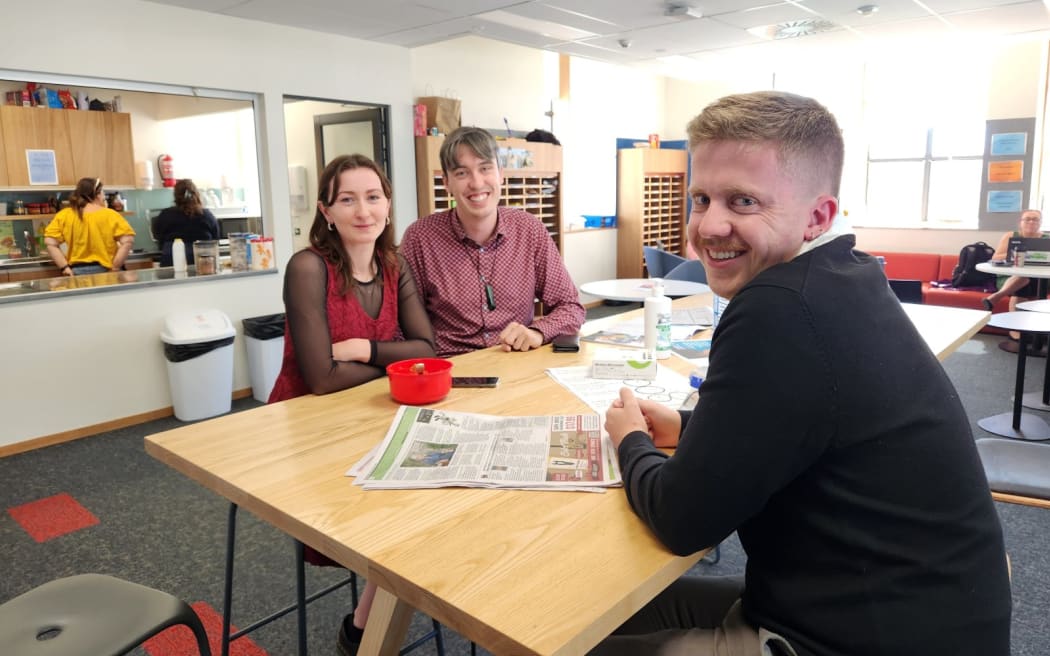
Secondary school teachers Prue Dreaver Stimpson, Nick Cox and Tim Atkins in the staffroom at Wellington East Girls' College. Photo: RNZ / John Gerritsen
About 50,000 teachers spanning primary, area and secondary schools and kindergartens are walking off the job over stalled pay talks with the Ministry of Education.
They have rejected a $6000 pay rise over two years and, for primary teachers, $1300 in one-off payments and 15 more hours per term of classroom release time.
Only secondary principals have accepted the ministry's offer, which for them was a $4000 pay rise plus a further 3 percent at the end of this year and a $6000 wellbeing allowance.
The strike would be the second time primary and secondary school teachers had walked off the job on the same day, and the first time kindergarten teachers had joined them.
At Newtown Primary School in Wellington, deputy principal Leanne Whitfield said the ministry's offer was not good enough.
"The pay jolt we got a few years ago has mostly disappeared through inflation, but actually the impact on teachers through dealing with a very wide range of needs in our classrooms is a much greater problem at the moment."
She said people would be shocked if they knew how under-resourced schools were.
Teacher Mary Bluck said she was striking, but the pay rise was not the most important issue for her either.
"It's about work conditions, smaller class sizes and greater support for our students," she said.
"I'm striking for our children. Our children at this point in the junior school have not had a normal school or education life due to Covid and so they have greater needs and we don't have the resources to support them in the way we'd like."
At Wellington East Girls' College, teacher Tim Atkins said he wanted a fair rate of pay that kept up with inflation.
"What they've proposed is actually a cut in real terms, but also for me personally I see lots of my peers and lots of my friends who are not teachers who I studied for the same time as, our jobs require the same level of education, the same amount of study, they're already $20,000, $30,000 ahead of me. We're just not valued financially in the slightest."
Fellow teacher Nic Cox said the ministry's offer would not keep pace with inflation, which was about 7 percent a year.
"If we take what the ministry's offering us, we'll have less money in relation to inflation compared to what we have at the moment," he said.
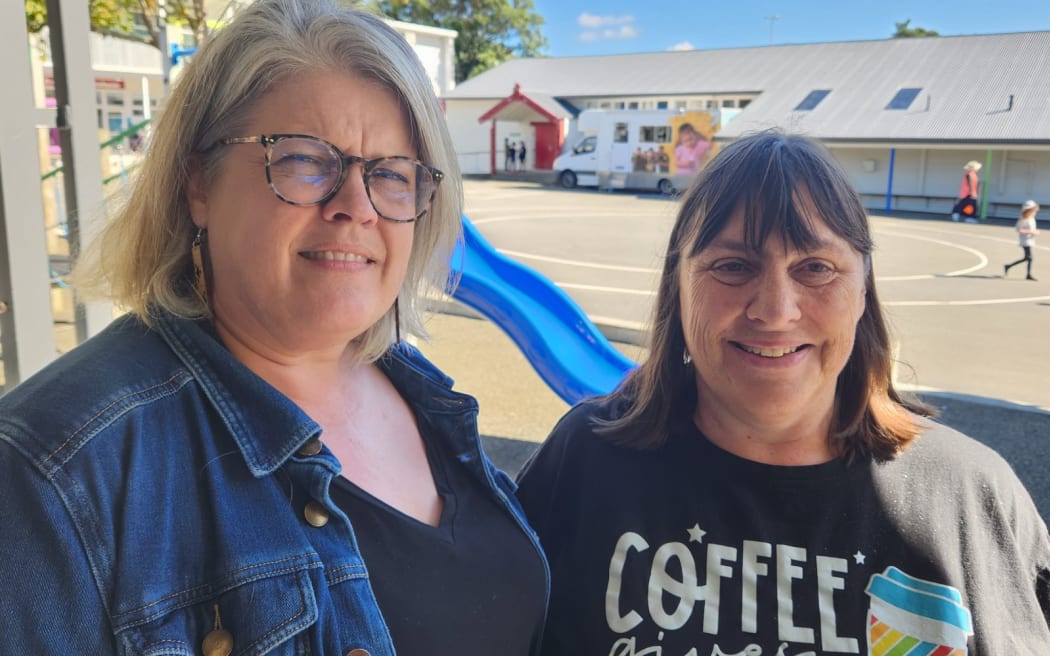
Newtown Primary School deputy principal Leanne Whitfield (left) and teacher Mary Bluck. Photo: RNZ / John Gerritsen
He said without a decent increase teachers' starting pay would not be much more than the minimum wage, and that would make it harder to attract people to the profession.
Though they wanted better pay, both teachers agreed strongly when their colleague Prue Dreaver Stimpson said she wants the government to improve teacher workloads.
"There is no time to do anything. I don't have time to create interesting and fun lessons, I'm just doing bread and butter, what-do-we-have-to-get-through. I don't have time to think, 'What does this individual student need?' I don't have time to eat my lunch, I don't have time to have any time to myself on the weekend, and I feel like I'm just running uphill and getting nowhere."
Teacher Chris Hayward said he wanted his pay to keep up with inflation, but he also wanted more support.
"We are seeing more diverse learners, we're seeing more learners who have challenging behaviours or challenging learning needs and we need more support and investment in those students."
Hayward said teachers wanted more teacher aides, more release time and more funding for professional training.
The Ministry of Education and Post Primary Teachers' Association were scheduled to enter mediated bargaining with the Employment Relations Authority on Friday.
The ministry would not reveal the total cost of its offers to teachers and principals.
It said its offer to primary teachers would give new teachers a pay rise of 11.7 percent over two years, and teachers at the top of the pay scale would get 7.6 percent and a new top rate of $96,820.
The ministry said its offer to primary teachers included 15 more hours per term of classroom release time over the next two years, which would require 1500 more teachers.
It said its offer to primary principals would increase the pay of principals of small schools by 7.6 percent, while the principals of the largest schools would get an increase of 5.9 percent.
Primary principals were also offered a $5000 annual wellbeing payment and $1350 in one-off payments.

